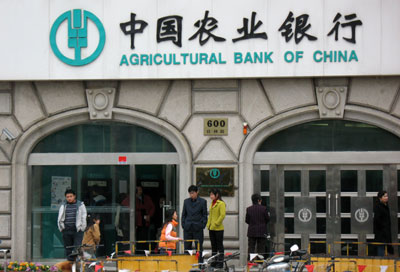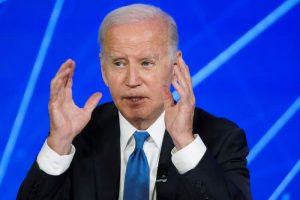BEIJING: Reports of bank runs among China’s small lenders have increased this year, fuelled by persistent online speculation over funding crunches and poor corporate governance in an economy weakened by Covid-19.
China has more than 4,500 small banks, many with strong ties to local businesses and opaque stakeholdings. Last year, at least two small lenders were hit by bank runs.
Below is a snapshot of five smaller lenders that saw a rush of withdrawals this year.
BANK OF HULUDAO
Based in northeastern Liaoning province, the bank is owned by 28 shareholders including a local private yacht maker, a state-backed construction firm and a local financial bureau.
On August 2, it said its former president, Wang Xueling, was being investigated by the local anti-graft bureau for possible serious violations of laws and regulations, a euphemism in China for corruption.
Depositors rushed to withdraw cash, according to local media reports and social media posts, forcing the local government, regulators and the police to step in to calm depositors.
Wang was once removed from the post of president in 2007 for embezzlement and barred from being a senior executive of any financial firm for three years, a statement on the website of China’s Banking and Insurance Regulatory Commission (CBIRC) shows. Wang regained his position in 2018.
BANK OF HENGSHUI
Based in northern Hebei province, the bank was once controlled by financially distressed Tunghsu Optoelectronic Technology Co, which reported a 31 billion yuan ($4.5 billion) loss in 2019 and missed an interest payment on 1.87 billion yuan of notes last year.
On July 11, after a court ordered Hengshui Bank to repay 226 million yuan to another bank on a financial contract, depositors rushed to withdraw money until the police stepped in.
The local offices of the central bank and the CBIRC said in a joint statement that any savings under half a million yuan at the bank and its branches are protected under the law.
Hengshui police said in a July 12 statement that it had detained people for spreading rumours and “triggering panic” and had also issued reprimands to them.
BANK OF BAODING
Based in Hebei, the bank’s shareholders include a local machinery manufacturer and the financial bureau of the city of Baoding.
On June 20, Baoding city said on its social media account that the bank was operating normally, and people “should not believe in or spread rumours”, after a group of depositors rushed to withdraw money from the bank.
Local police on the same day said it had arrested two people for spreading rumours that led to “panic among the public”.
YANGQUAN COMMERCIAL BANK
Based in northern Shanxi province, the bank’s majority stakeholder is a government-backed coal company in Yangquan.
On June 16, its branches received a high volume of over-the-counter cash withdrawal requests, following rumours that four of its senior executives were involved in a crackdown on poor governance at Shanxi’s rural banks, Caixin reported.
In a widely shared video on the Twitter-like Weibo on June 17, Yangquan’s vice mayor, Huang Haitao, assured depositors that the bank’s liquidity was sound and was operating normally.
BANK OF GANSU
Based in Lanzhou, capital of northwestern Gansu province, the Hong Kong-listed lender posted an 85% slump in 2019 profit as its bad loans ratio rose to 2.45%.
Depositors rushed to withdraw cash at one of its branches on April 4, shortly after the annual earnings announcement.
Local government and regulators later said in a joint statement that the bank’s assets were sufficient, and its operations and management were sound.
Reporting by Cheng Leng and Ryan Woo for Reuters
























